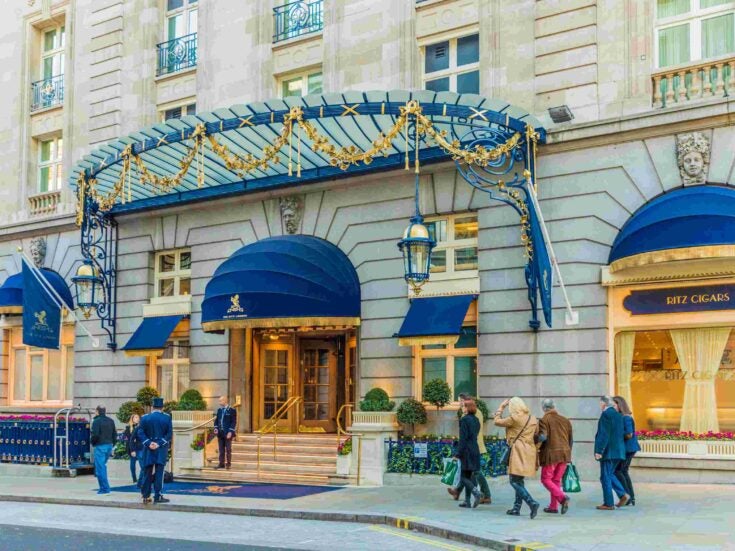
A new and powerful anti-money laundering regime is targeting the wealthy, with an unprecedented reach to offshore jurisdictions, writes Simon Bushell
Professionals have complied with ‘anti-money laundering’ regulations for three decades —laws which prevent criminals using the financial system to dissipate the proceeds of crime and making the original criminal activity difficult to trace. They do not distinguish between criminals (except terrorists), be they white collar, organised crime, or kleptocratic governments. Where the crime was committed is irrelevant.
The return of ‘cold war’ relations between the UK and Russia has renewed interest in the AML regime: questioning how prominent politically exposed persons (PEPs), oligarchs and wealthy foreigners have acquired valuable property in the UK. Typical purchasers are temporary residents from countries with a weak rule of law, having accumulated vast wealth and trophy assets: London mansions, iconic artworks or even football clubs. Similarly, ownership of various London-listed energy and natural resources companies can be traced back to the months following the USSR’s collapse. Those public offerings produced share sales, generating substantial liquidity for the sellers. According to the National Crime Agency (NCA), suspect money coming into the UK probably exceeds £90 billion a year.
Navigating the AML regime can be fraught with obstacles. Firstly, it is important to remember that the laws in countries from which the wealth was generated often lack clarity and the countries themselves do not have the proper resources to ensure enforcement. Therefore, it cannot be said with confidence that any crime was acquitted in acquiring the wealth. Further, it is important to consider that AML legislation emphasises the need for professional advisers to identify their clients or ultimate beneficial owners. In addition, it should be noted that notification of suspicions of money laundering often disappear into a ‘black hole’, rarely leading to transactions being blocked. Lastly, with a PEP client, it is vital to remember that an obligation exists to identify the funds’ source, but this does not require extensive backward-looking exercises.
The Criminal Finances Act 2017 (CFA), which came into effect in January, has changed the landscape. Although sparingly used, its impact has, anecdotally, been considerable. CFA enables UK enforcement authorities (NCA, HMRC, FCA, SFO and CPS) to examine the ownership of assets of a PEP, a person connected with a PEP, or involved in serious crime.
New provisions, ‘unexplained wealth orders‘ (UWOs), are deployed when there is an obvious gap between an asset’s value (minimum £50,000) and the income of the owner – a natural person or a corporation or trust.
The new law significantly shifts the burden of proof – the owner must show the legitimacy of the funds used to acquire the asset – it is not for law enforcement agencies to prove in court that it was purchased with laundered funds. Any statement made in response to an UWO must explain the interest in the relevant property, how it was obtained, how costs were met, details of any trust or other structure by which the property is held, and any other stipulated information. Respondents can apply to set aside or vary an UWO, although this may be difficult to achieve unless the Court has somehow been misled at the ex-parte stage (where the prosecuting authority would have a duty of disclosure).
Technically, the new laws carry significant extraterritorial reach. Whilst the prosecuting authorities are likely to focus on assets within the jurisdiction, any explanation as to how assets were acquired might involve evidence from abroad – business activities, and an assessment whether under any relevant foreign law, any crime was committed during the course of the defendant acquiring their wealth. Moreover, there is no reason why an UWO cannot be directed against a respondent located abroad and/or in respect of property located outside the jurisdiction.
UWOs have made London bankers and other advisers very anxious. Not only are overseas clients becoming nervous about acquiring UK assets, and basing themselves here, they are also concerned about assets they may have acquired here long ago. In principle, there is no reason why the authorities cannot seek UWOs in relation to any qualifying assets regardless of when they were acquired. These new powers are retrospective and arguably inconsistent with the rule of law. Advisers are also concerned that decisions made by authorities in pursing such matters are highly selective, and potentially arbitrary.
When the UK is under scrutiny because of Brexit, absent some clarity, these arbitrary, retrospective and extra-territorial powers will inevitably further dampen investor sentiment, and undermine the reputation of our legal system, including property ownership rights.
Will this trend catch-on? If other countries do not follow, where will this leave post-Brexit Britain? Presently, similar legislation exists in Ireland, Australia, Colombia and Pakistan.
The present situation sheds a light on why PEPs are chief targets. Arguably, the UWO regime would benefit from being clearly focused on PEPs: to assist in the investigation of crimes (especially corruption) committed abroad, with the emphasis on repatriating assets to victim nations. With similar laws now existing in countries such as Ireland, Australia, Colombia and Pakistan, there is a chance that the UWO momentum will increase further, with even more countries catching up in the foreseeable future.
Simon Bushell is a partner at Signature Litigation
Photo credit: Pixabay
Related
Unexplained Wealth Orders: How to protect assets from seizure
High Court grants first unexplained wealth orders
Get ready for Unexplained Wealth Orders








